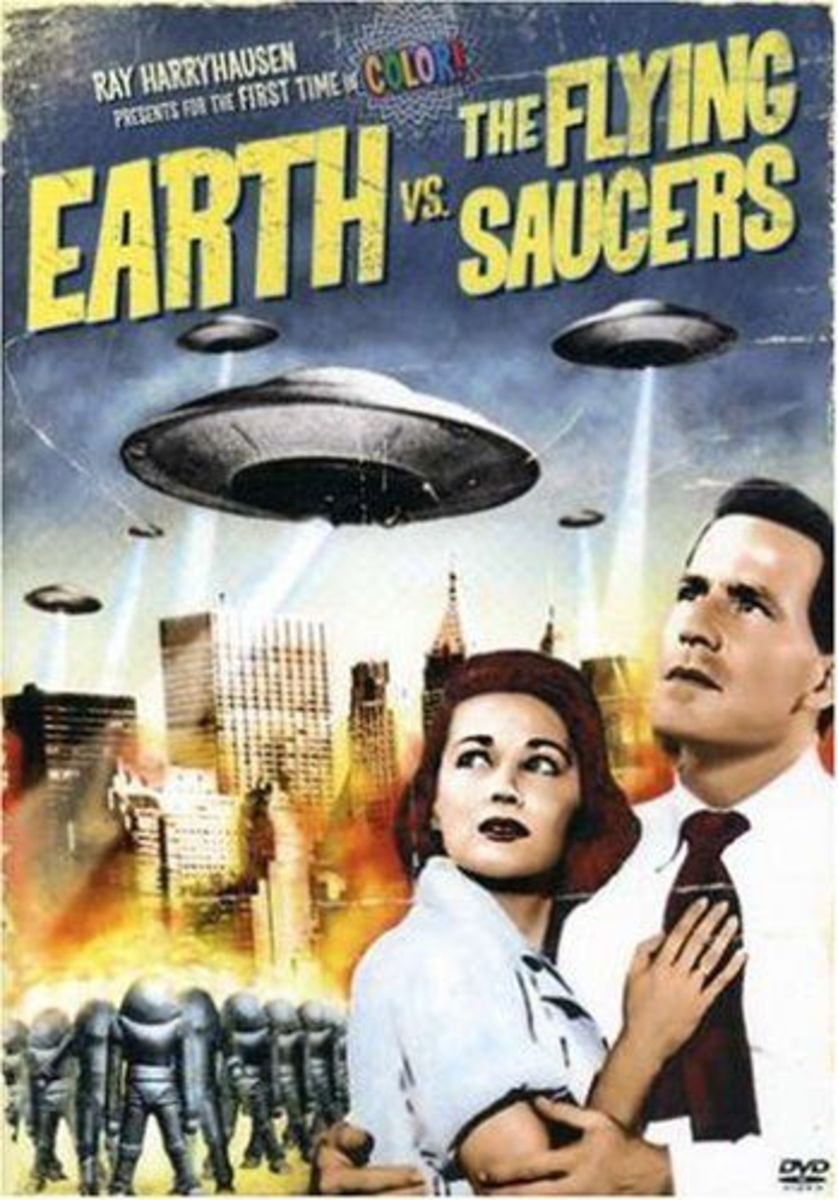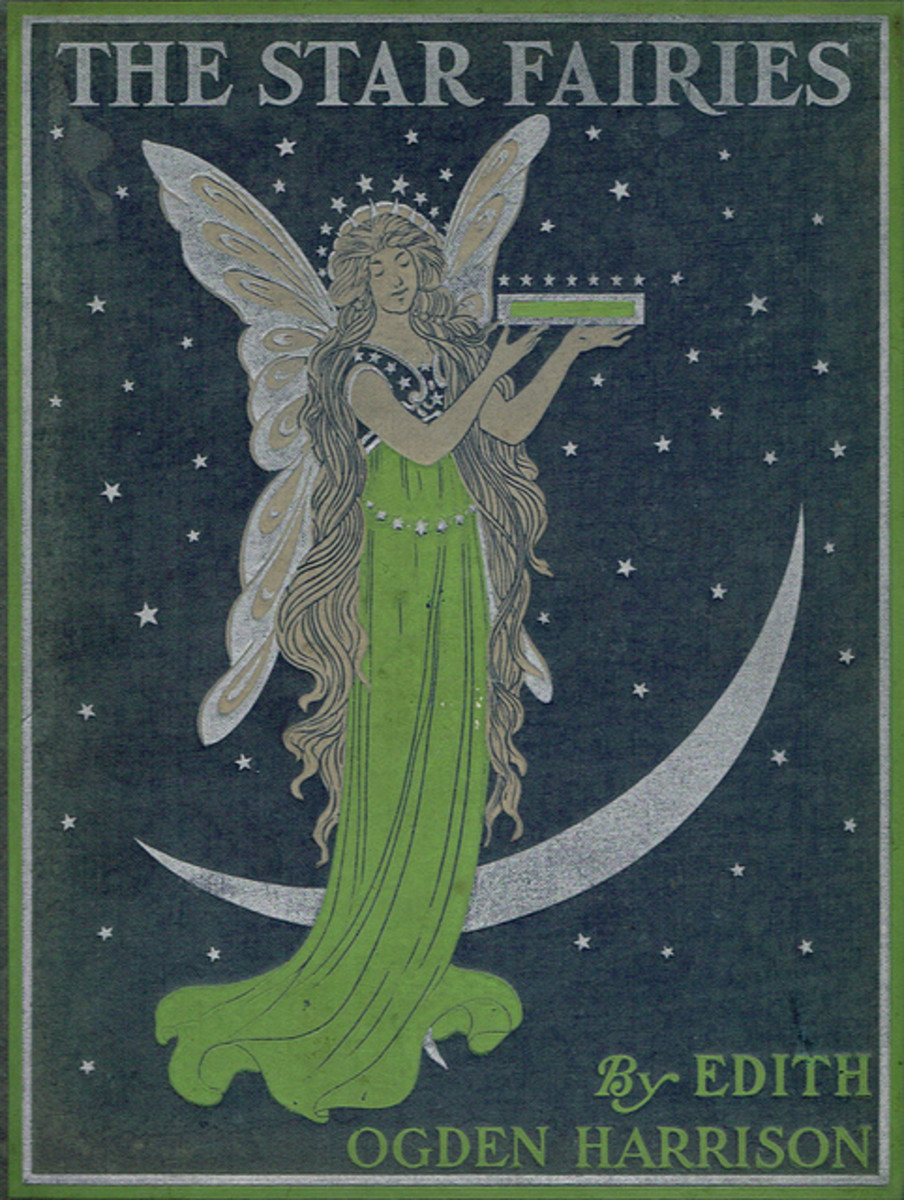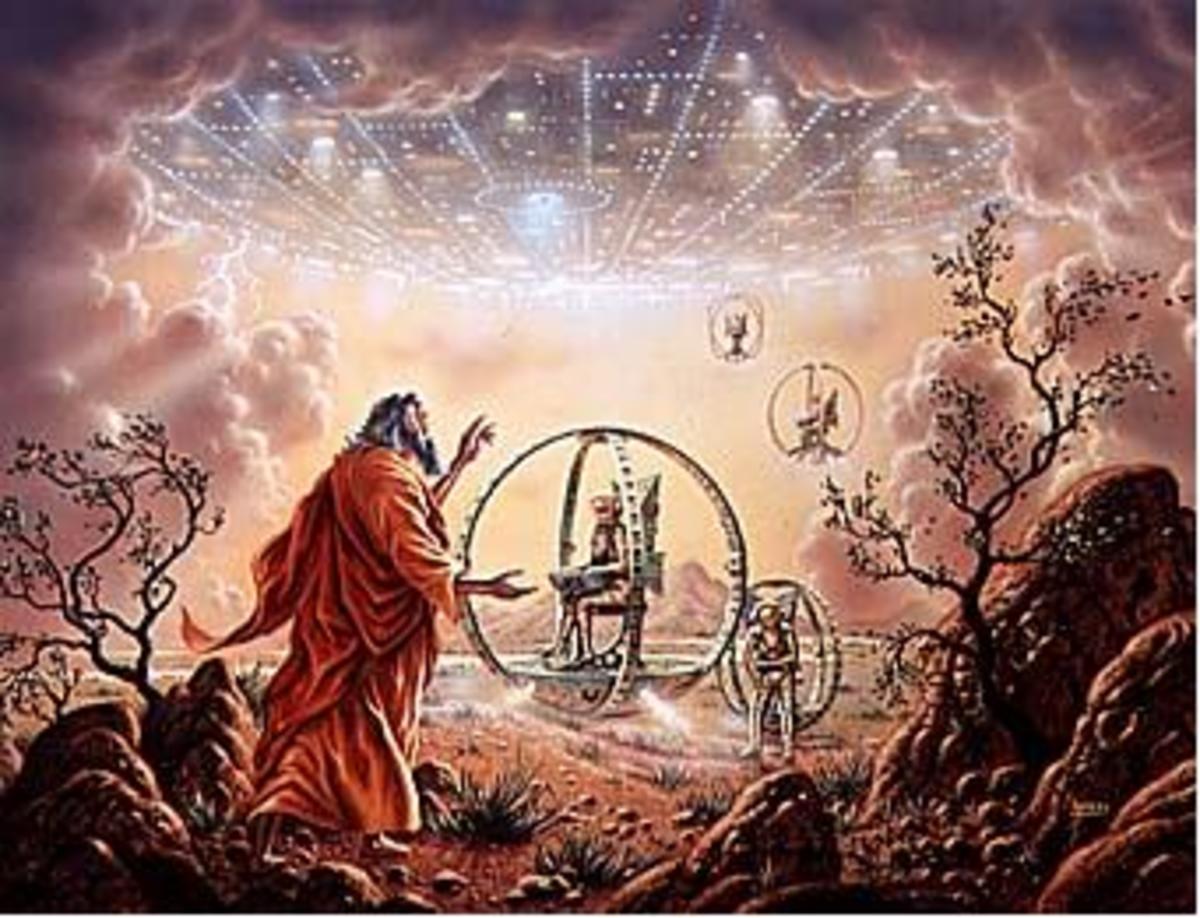Which Came First: Real Aliens or Imaginary Invaders?

I love movies that feature aliens.
No matter how old or new, no matter how poorly or excellently crafted—I’ll watch any film that stars a creature from outer space, especially if it has the audactiy to intrude on our nice little earthly routines and totally freak us all out.
If the creature is determined to steal our wimmin, all the better. And if we get hybrids, that’s cool too.
I wonder where our cultural bad dreams come from though?
When the first wave of sci fi flims hit the movie theaters in the 1950s, they were instantly popular, coming as they did on the heels of Roswell and Kenneth Arnold’s first flying saucer sighting in 1947, and fueled by the paranoia of the Atomic Age.
Since that time, alien lore has become a mainstay of American popular culture. Some people take it literally. Some take it as literature. Still others make movies that blur the line between truth and fiction intentionally.
The truth is out there all right, but what is it?

Looking at the chronology of alien sci fi juxtaposed with the chronology of actually UFO sightings (and later, alien abductions), it’s tempting for believers to conclude rather quickly that, “The films clearly came after the real thing revealed itself.”
People who read and love comic art, however, might point to H. P. Lovecraft’s obsession with aliens as early as very first part of the 20th century. The Color Out of Space, an alien invasion story that Lovecraft himself considered to be the best of all his creative work, was pubished in 1927 in the lurid (but incredibly popular) pulp magazine Amazing Tales .
He wasn’t the first to tap the theme.
Belief in aliens and concern about their nefarious activities regarding humans dates back long before Lovecraft.
The creepily prescient French novelist Jules Verne wrote From Earth to the Moon in 1865, roughly contemporary with the discovery of ‘canals’ on Mars and a growing public appetite for space fare. The Victorians were mad with the possibility—and in time, the conviction—that the planet Mars was inhabited by hostile life forms much more ancient that human beings; and the fear that these life forms were biding their time until the moment was right to invade and take over Earth for themselves.
This popular belief and seemingly irrational fear made H.G. Wells 1898 novel The War of the Worlds an instant success. Even when the idea of man made canals on Mars was soundly refuted by better telescopic equipment and more accurate science, the general public continued to believe that the canals existed and that these (now refuted) structures were proof of current (or defunct) Martian civilizations.
It’s tempting to psychologize popular fear of aliens and belief in their existence, but I think that’s a really boring way of looking at it. We’ve all heard the pat explanations:
- Projection: We take our fears and turn them into aliens.
- Mystification: We want to believe in something more powerful than us so we create aliens.
- Psychosis: We’re just plain crazy so we believe in space aliens.
- Neuroscience: We have sleep disorders or fried neurons or whatever. Fill in the blank.
These kinds of explanations seem to me too one-dimensional to truly illuminate the strange relationship between our cultural dreams of alien life and what we experience as reality. They give us no insight into why these particular dreams, and why so persistent, so rich, so timelessly terrifying?

Lovecraft hated the way that science fiction and fantasy authors of his own time and before portrayed aliens. What frustrated him most was how human the aliens always were, and how unimaginatively they were handled.
Maybe they had bug eyes, but they had human shaped bodies and five fingers and space suits. Maybe they had advanced technology, but somehow it always looked like a barely slicker version of our own.
Lovecraft felt that aliens were never alien enough, if alien at all. In The Color Out of Space , the alien presence is barely recognizable as a life form. Presenting itself as a strange color seen nowhere on earth save in this one spot where a meteor crashes, Lovecraft’s alien is a ghastly emanation that distorts and perverts every earthly thing it touches and creates incurable madness down through generations.
Elusive and toxic, Lovecraft’s alien is truly alien. It is not just inhuman; it is barely real. Nothing we can fully understand, this seeping ether is always just beyond our comprehension and even apprehension. All we intuit of The Color Out of Space is raw terror, and that terror is legitimate and justified.
Herein lies the best portal, I think, to understanding our complex and centuries old relationship to aliens both in our art and in our lives: This fear of otherness, and the accompanying intuition that what we think we are and what we think we know is by no means complete or accurate; that always just outside our perception something is lurking that is not us.
Terror in the face of something immense and totally other has been described by more than one philosopher as a primal religious response; a first cause from which all our other theories spring, whether we acknowledge it as such or not. Life itself is a queasy business. Fear of the other. Fear of life. Fear of God. We cannot know what we cannot know.
And knowing that dogs our every step.
Not just intellectually, but emotionally and imaginatively.
Dreams or reality? Sci fi or aliens? God or man? Chicken or egg?
Maybe these aren't even the right questions.








